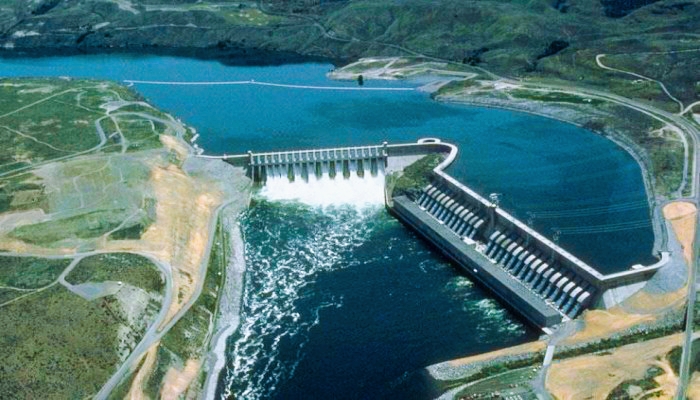In a new development that brings the Renaissance Dam crisis back to the forefront, US President Donald Trump announced that the United States will seriously seek to reach a solution to the crisis of the Renaissance Dam and the Nile River between Egypt and Ethiopia, affirming that this issue affects the lives of millions of Egyptians who rely primarily on the river's waters.
Trump's statement came during a press conference held at the White House with NATO Secretary-General Jens Stoltenberg, where he emphasized that Washington will make real efforts to find a solution that satisfies all parties, reaffirming his personal commitment to working on settling this complex issue.
Trump had previously mentioned the Nile water file in a post on "Truth Social" platform in June, pointing out that he deserves the Nobel Peace Prize if he manages to impose peace between Egypt and Ethiopia, even though Addis Ababa is moving forward in building a huge dam that affects the water shares of the downstream countries, namely Sudan and Egypt.
The crisis escalated last week after the Ethiopian Prime Minister announced his country's intention to officially open the dam in September, sparking Cairo's objection, describing it as a unilateral and illegal escalation.
Egypt's Minister of Water Resources, Engineer Hani Sewilam, announced Egypt's firm rejection of the continued policy of imposing facts on the ground by the Ethiopian side, which promotes the completion of the dam's construction despite the absence of a binding legal agreement with Egypt and Sudan, which Cairo considers a violation of international law and a threat to its existential interests.
Assistant Foreign Minister for Sudanese Affairs Yasser Sorour confirmed that diplomatic efforts regarding the dam have not stopped, emphasizing that Egypt continues its movements on both the technical and political levels to explain the dimensions of the issue directly related to the existence of the Egyptian people and their lives.
The fourth and final meeting in the Renaissance Dam negotiations track, held at the end of 2023, ended in failure amid mutual accusations between the parties.
Egypt attributed the failure to Ethiopia's continued adherence to its rejection of any technical or legal compromise solutions, considering that Addis Ababa had backtracked on previous understandings that met part of its declared interests.
The Renaissance Dam file has been a regional tension point for years, with Egypt and Sudan opposing Ethiopia's unilateral steps related to filling and operation, demanding a fair and binding legal agreement that guarantees the rights of the three countries in the Nile waters.

